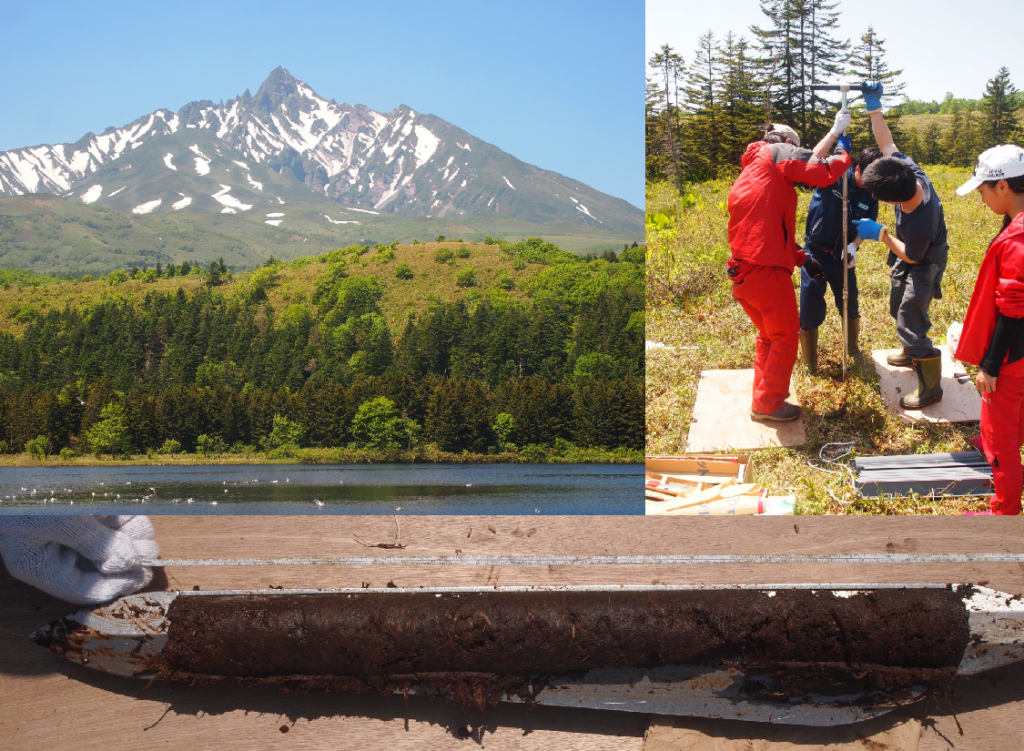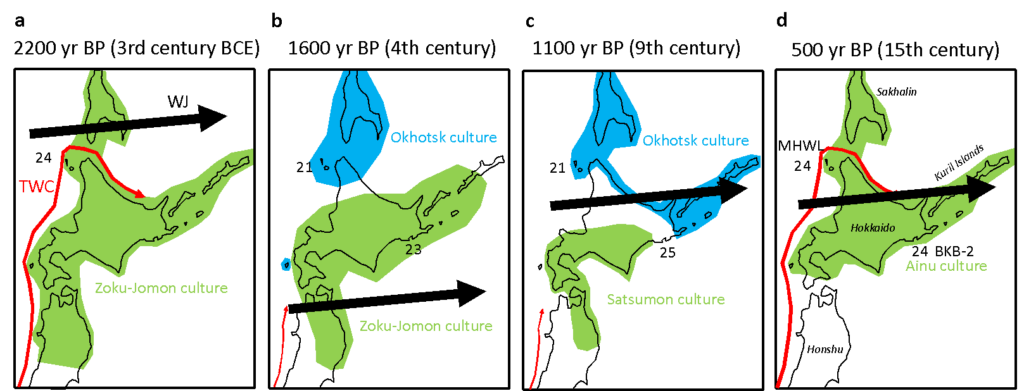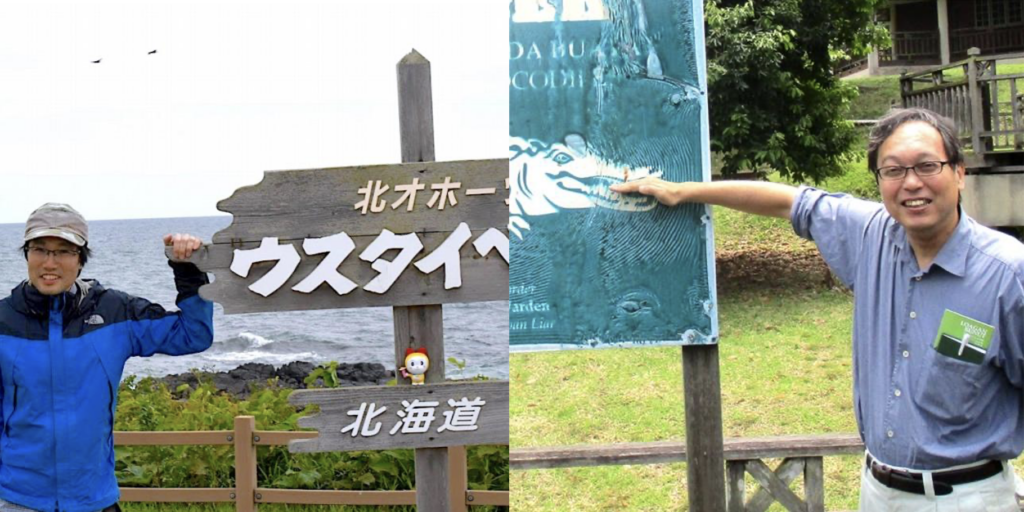Scientists from Hokkaido University have reconstructed the climate of Hokkaido over the past 4400 years and have revealed that changes in the climate influenced changes in historic cultures during that time.

Minamihama moor, Rishiri Island, the location sampled for the study (top left); Collection of a core sample from the moor (top right); the core sample (bottom; Photos: Masanobu Yamamoto).
It is vital to understand how human communities react to climate change so that we can predict how it will influence our lives and mitigate its effects. One way to achieve this is to combine archeological evidence and climate reconstructions of the past to understand how historic and prehistoric cultures were affected by climate change.
Professor Masanobu Yamamoto and Associate Professor Osamu Seki at Hokkaido University have created climate reconstructions for Hokkaido Island, Japan, dating back to 4400 years ago. Their results, published in the journal Geophysical Research Letters, reveals the relationship between changes in the climate and changes in human cultures on Hokkaido.
Climate reconstruction is the field of study in which scientists use clues from Earth's natural environmental records to deduce the climate in the past. For this study, the scientists chose to use sphagnum moss from the Minamihama peatland on Rishiri Island. The moss has been present in this peatland for the last 4500 years, and could provide a record of climate changes in that timespan.
The scientists measured the concentration of oxygen-18 in the sphagnum moss and plant matter in core samples collected from the peatland. Water from precipitation has a higher oxygen-18 concentration than water from relative humidity. Further, precipitation is dependent on the position of the summer westerly jet, and relative humidity is dependent on the strength of the Tsushima Warm Current. From this information, the scientists were able to reconstruct the climate conditions over the last 4400 years. By comparing their measurements to those from samples from another location on Hokkaido, they were able to determine major climate shifts across Hokkaido during that period.
They correlated these shifts in climate with the changes in the cultures in Hokkaido. During this period, Hokkaido was inhabited by the related Jomon, Zoku-Jomon, Satsumon and Ainu cultures, which are inland hunter-fisher-gatherer-farmer cultures; it was also inhabited by the Okhotsk culture, a marine hunter-fisher culture. The spread of the Okhotsk culture was linked to the weakening of the ocean currents, while the spread of the inland cultures was linked to the position of the summer westerlies.

The relation between climate and culture spread in Hokkaido. When the summer westerly was in the north and the Tsugaru Warm Current (TWC) was strong (left), the Zoku-Jomon culture spread across Hokkaido and into Sakhalin. As the summer westerlies moved southward and the TWC weakened, the Okhotsk culture spread southward (center left); and continued to spread across the northern coast of Hokkaido even as the summer westerlies moved northwards once more (center right). Only when the TWC strengthened again did the Ainu culture spread northwards into Sakhalin (right). The Zoku-Jomon, Satsumon and Ainu are related cultures, and so represented by a single colour (Masanobu Yamamoto, Osamu Seki. Geophysical Research Letters. March 01, 2022).
This study contains the first well-dated robust climate records based on hydrological proxies in Hokkaido. More importantly, it shows that, historically, cultures of different lifestyles responded differently to climate changes. The summer westerly jet and the TWC influence agriculture and fisheries in Hokkaido to this day; it is predicted that they will change due to global warming, which in turn will affect the future of these industries.
Osamu Seki (left) and Masanobu Yamamoto (right), authors of the study (Photo: Osamu Seki, Masanobu Yamamoto).

Osamu Seki (left) and Masanobu Yamamoto (right), authors of the study (Photo: Osamu Seki, Masanobu Yamamoto).
Original Article:
Masanobu Yamamoto, Osamu Seki. Impact of Climate Change on Hunter-Fisher-Gatherer Cultures in Northern Japan Over the Past 4,400 Years. Geophysical Research Letters. March 01, 2022.
DOI: 10.1029/2021GL096611
Funding:
This work was supported by the Japan Society for the Promotion of Science (JSPS; 25610146, JPMXS05R2900001, 19H05595)






